The color red has a charm of its own. In contrast, they look great in a dress, shoe, or bag, to be precise. But, speaking otherwise of these red rubies, you also get to have them in terms of tasty delectables. Red vegetables get their color from an antioxidant known as lycopene, with multiple health benefits. The list goes as reducing chances of heart disease and helping you fight infections.
Also, the vegetables in red are full of fiber, vitamins A and C, and minerals. Add some to your weeknight meal and get your immunity quotient heightened multiple folds. Other health benefits of the Anthocynian content in these include improving your eyesight, reducing blood pressure, and protecting the liver.
Seven Red Vegetables For A Healthy Diet
Here, it is about introducing you to the most common type of seven vegetables that are red and readily available at home. Include them in your diet and experience improvement in overall physical and mental health.
Red Tomatoes
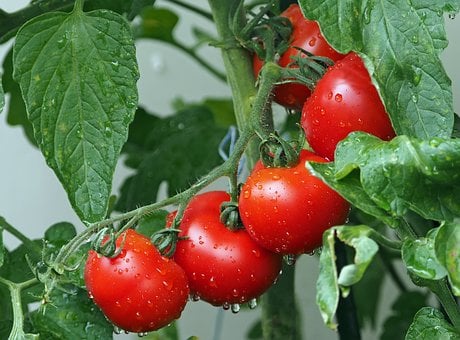
Scientific Name: Solanum lycopersicum
Red Tomatoes come at the top of the red vegetable list, acting as a nutritional powerhouse. It tastes great anywhere you add, in soup stews and sandwiches. Further, the same is made up of 95% water, keeping you all healthy and hydrated. The rest 5% in tomato marks for Vitamin B and E.
Adding adequate amounts of Red Tomatoes to your diet will help against metabolic syndrome, including conditions that enhance the risk of stroke, diabetes, heart disease, and other severe health issues. Also, if you suffer from constipation, consider having Tomatoes. The water content in the red vegetable supports hydration and good bowel movements.
Red Cabbage
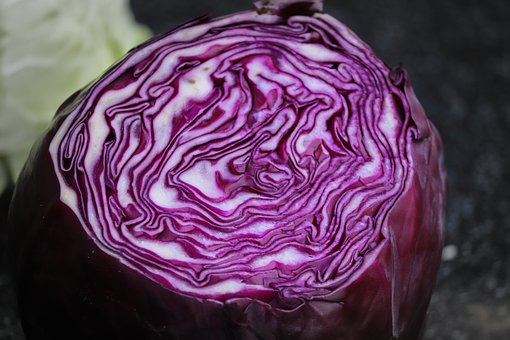
Scientific Name: Brassica oleracea
Red Cabbages contain antioxidants rich in vitamin K and fiber, which will surely boost your digestion ability. Other nutrients it offers are Zinc, Magnesium, Phosphorus, and Calcium. Thus helping you maintain adequate health of your bones. Moreover, fermented Red Cabbage is good for gut health and enables you to maintain the proper balance between probiotics and microbes.
Interestingly you can also apply the leaves of this red vegetable to the skin to reduce the effects of inflammation. A study from 2019 states that anthocyanins present in red cabbage help ensure adequate heart health. Lowers risks of heart attacks and other cardiovascular diseases.
Red Bell Pepper

Scientific Name: Capsicum annuum
You can have red bell peppers raw or in cooked form. This particular has the highest Vitamin C content, perfect for the flu season, helping you with proper immunity. Also, one Bell pepper, in particular, has only 40 calories, perfect for adding the same in pizzas and fajitas, maintaining a healthy diet.
This has it all if you are searching for a source of multivitamins A, E, B6, and K. Additional nutrients include Folate, Riboflavin, Iron, Potassium, and Magnesium. Red bell pepper’s antioxidants help with better immunity and protection against heart diseases, Cancer.
Beetroot
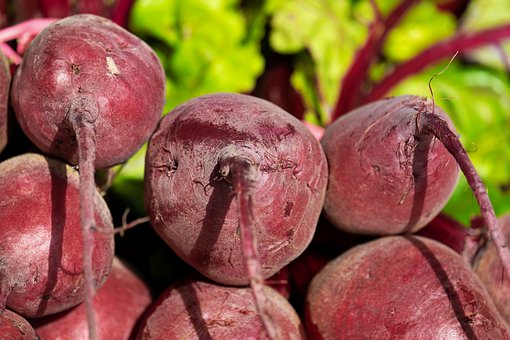
Scientific Name: Beta vulgaris
As per USDA, beetroot is rich in antioxidants and a great source of potassium, nitrates, fiber, and folate. You can have beetroots as salads or juice. These earthy vegetables are rich in Vitamins A, K, and C. Adding extra importance are the inbuilt Manganese levels that help you with bone formation, brain functions, and essential nutrient metabolism.
Furthermore, beetroots’ copper content helps synthesize and produce energy for certain neurotransmitters. If you are into physical activities, include beetroot in your daily diet. As it will help the heart and lungs function better during exercise. The fiber levels in beetroot help promote good bacteria in your gut.
Rhubarb
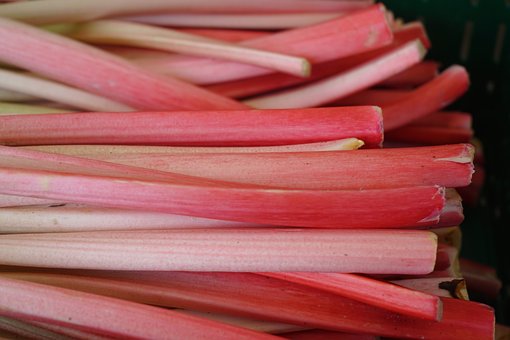
Scientific Name: Rheum rhabarbarum
Rhubarb is an excellent vitamin K source that helps maintain bone health. Also, in your list of vegetables that are red, rhubarb will help you fight against those radicals that cause skin damage and make one look older before age. Together with other Minerals and Vitamins, antioxidants packed inside Rhubarb make for various health benefits.
Commonly people consume Rhubarb as a sweet dessert combined with strawberries. The fiber content in this red vegetable helps with cholesterol levels and reduces the chances of heart attacks and other related diseases. Also, the same when moving through the digestive tract helps eliminate constipation.
Red Carrot
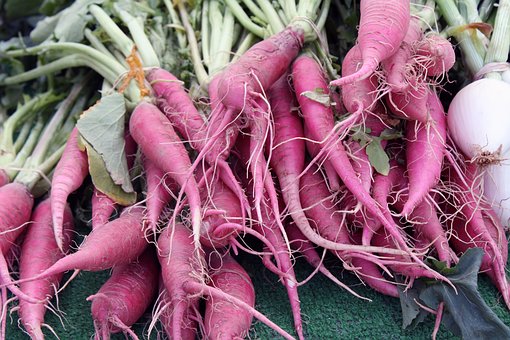
Scientific Name: Daucus Carota
Red carrots are helpful against heart disease. Also, its lycopene content is suitable for fighting against cancer (prostate), serum lipid oxidation, and muscle degeneration. Vitamin A or beta carotene from red carrots will help you to the fullest when looking to maintain adequate health of the eyes and skin. Otherwise, Red carrots are a rich source of Calcium and Vitamin K, suitable for bone health.
With high fiber content, this red root vegetable helps ease constipation. Doctors usually prescribe diabetes patients to include non-starchy vegetables in their meals. In that case, the fiber in carrots helps monitor blood sugar levels.
Radicchio
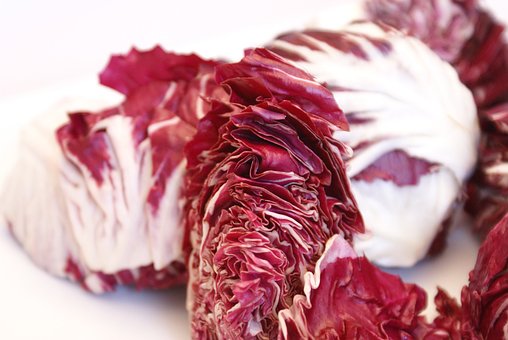
Scientific Name: Cichorium intybus
In the red vegetables list, Radicchio stands as the most popular in Italian cuisine. Also, spring and summer call for the harvesting of these vegetable types. The fat content here is 0. Besides, you can enjoy multiple vitamins, nutrients, and minerals. Since Radicchio is an excellent source of dietary fiber inulin, you can try the same during your journey of weight loss.
Further, vitamin K helps with heart health, preventing minerals from accumulating in the arteries. Adding enough vitamin K to your diet from a young age can help you fight diseases like Alzheimer’s.
Nutrition content like Vitamin C, Carotenoids, Lycopene, Anthocyanins, Betacyanin, and Betalain is found in red vegetables. Also, these red wonders are good the taste.



